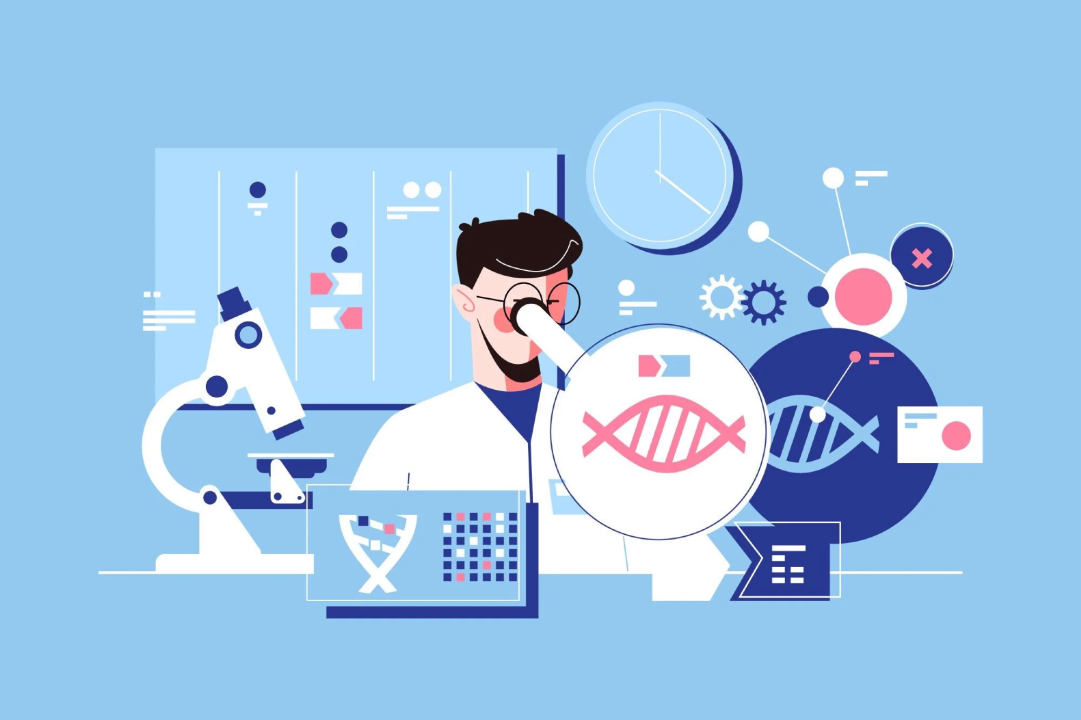The Emergence of Bioinformatics and Its Impact on Healthcare
Bioinformatics, an interdisciplinary field that combines biology, computer science, and statistics, has emerged as a transformative force in healthcare. By leveraging computational tools and techniques to analyze biological data, bioinformatics is revolutionizing medical research, personalized medicine, and genomics. This article explores the impact of bioinformatics on these areas and its role in advancing healthcare.
What is Bioinformatics?
Bioinformatics involves the use of software and algorithms to manage, analyze, and interpret biological data, particularly large datasets generated by high-throughput technologies such as genomic sequencing. It integrates data from various sources, including genetic sequences, protein structures, and clinical records, to uncover patterns and insights that drive scientific discoveries and medical advancements.
Transforming Medical Research
- Accelerating Discovery:
- Genomic Research: Bioinformatics tools enable researchers to analyze vast amounts of genomic data, leading to the identification of novel genes, genetic variants, and pathways associated with diseases. This accelerates the discovery of new biomarkers and drug targets.
- High-Throughput Screening: Techniques such as RNA sequencing and proteomics generate massive datasets that bioinformatics can process to identify potential therapeutic candidates and understand disease mechanisms.
- Data Integration and Analysis:
- Multi-Omics Approaches: Bioinformatics integrates data from genomics, transcriptomics, proteomics, and metabolomics to provide a comprehensive view of biological systems. This holistic approach helps researchers understand complex interactions and identify potential points for intervention.
- Data Sharing and Collaboration: Bioinformatics facilitates the sharing of research data across institutions and disciplines, promoting collaborative efforts and accelerating the pace of scientific discovery.
- Disease Modeling:
- Predictive Models: By analyzing genetic and clinical data, bioinformatics can create predictive models of disease progression and treatment response. These models help researchers understand disease mechanisms and develop targeted therapies.
- Systems Biology: Bioinformatics contributes to systems biology by modeling biological networks and pathways, providing insights into how changes at the molecular level impact cellular functions and contribute to disease.
Advancing Personalized Medicine
- Tailored Treatments:
- Genetic Profiling: Bioinformatics enables the analysis of individual genetic profiles to tailor treatments based on a patient’s unique genetic makeup. This approach improves treatment efficacy and reduces adverse effects.
- Pharmacogenomics: By studying how genetic variations affect drug metabolism and response, bioinformatics helps in designing personalized drug regimens, optimizing dosages, and predicting patient reactions to medications.
- Precision Diagnostics:
- Molecular Diagnostics: Bioinformatics tools analyze molecular data to diagnose diseases with high accuracy. This includes detecting genetic mutations, identifying infectious agents, and analyzing biomarkers associated with specific conditions.
- Predictive Analytics: Bioinformatics can predict disease risk based on genetic and environmental factors, allowing for early intervention and preventive measures.
- Patient Stratification:
- Risk Assessment: Bioinformatics helps in stratifying patients into different risk categories based on their genetic profiles and other factors. This enables more targeted and effective treatment strategies.
- Clinical Trials: Personalized medicine benefits from bioinformatics in designing and conducting clinical trials that target specific patient populations, improving the likelihood of successful outcomes and reducing trial failures.
Revolutionizing Genomics
- Genome Sequencing:
- High-Throughput Sequencing: Advances in sequencing technologies, supported by bioinformatics, have dramatically reduced the cost and time required to sequence entire genomes. This has led to the widespread availability of genomic data for research and clinical applications.
- Genome-Wide Association Studies (GWAS): Bioinformatics tools analyze GWAS data to identify genetic variants associated with complex traits and diseases. These findings contribute to understanding genetic predispositions and developing targeted interventions.
- Functional Genomics:
- Gene Function Analysis: Bioinformatics enables the annotation and functional characterization of genes and regulatory elements. This information is crucial for understanding gene functions, interactions, and their roles in health and disease.
- Epigenomics: Bioinformatics tools analyze epigenetic modifications, such as DNA methylation and histone modifications, to understand their impact on gene expression and disease development.
- Comparative Genomics:
- Cross-Species Analysis: Bioinformatics allows for comparative genomics studies across different species, providing insights into evolutionary processes and identifying conserved genes and pathways relevant to human health.
- Functional Conservation: By comparing genomes of different organisms, bioinformatics helps in identifying functionally conserved elements and understanding their roles in disease mechanisms.
Challenges and Future Directions
- Data Management and Integration:
- Big Data: The rapid growth of biological data poses challenges in data management, storage, and integration. Developing robust bioinformatics infrastructure and tools is essential to handle and analyze large-scale datasets efficiently.
- Data Privacy: Ensuring the privacy and security of sensitive genetic and health data is critical. Implementing stringent data protection measures and ethical guidelines is necessary to address privacy concerns.
- Algorithm Development:
- Accuracy and Reliability: Improving the accuracy and reliability of bioinformatics algorithms is crucial for generating trustworthy results. Ongoing research focuses on developing more sophisticated algorithms and validating their performance.
- Interdisciplinary Collaboration: Collaboration between bioinformaticians, biologists, clinicians, and data scientists is essential for addressing complex biological questions and translating research findings into clinical practice.
- Clinical Translation:
- Implementation: Translating bioinformatics discoveries into clinical practice involves overcoming regulatory, logistical, and practical challenges. Ensuring that bioinformatics tools are validated and integrated into clinical workflows is key to realizing their full potential.
- Education and Training: Educating healthcare professionals and researchers about bioinformatics tools and techniques is important for maximizing their use and impact in medical research and patient care.
Conclusion
Bioinformatics is at the forefront of transforming healthcare by advancing medical research, personalized medicine, and genomics. By harnessing the power of computational tools and large-scale data analysis, bioinformatics is driving innovations that enhance our understanding of diseases, tailor treatments to individual patients, and advance genomic research. As the field continues to evolve, addressing challenges related to data management, algorithm development, and clinical translation will be essential for maximizing the benefits of bioinformatics and improving healthcare outcomes.


